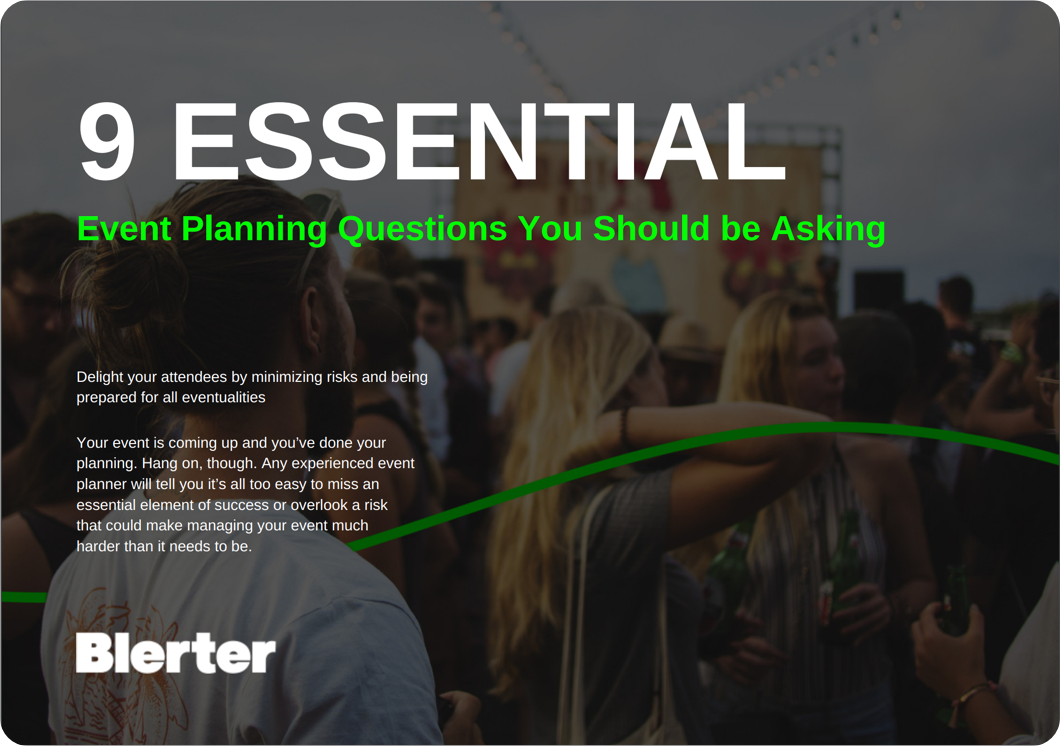Discover the power of setting the right expectations for your event volunteers and staff.
Communication and expectation setting could be the difference between a good event and a great event – these people are the face of your event, after all.
“Coming together is a beginning. Keeping together is progress. Working together is success.” – Henry Ford
You’re planning an event and you’ve come to that tricky stage when you need to create the team that will deliver the event in your vision. Chances are you’ll need event volunteers to help paid staff and suppliers achieve it. There are a few things you need to consider if you want to meld your team into a successful unit.
Warning: a team that doesn’t know what it needs to do, where it needs to do it, when it needs to do it and for whom it needs to do it isn’t going to achieve much.

A recent review of event management research made a very pertinent point:
“Regardless of the purpose, all events focus on creating a temporary community with a meaningful experience for attendees.”
So, what do you need to do to create an effective event team that will work to create a “temporary community” and deliver a great event experience?
You might think the difference between staff and volunteers boils down to whether you put money in their bank or not. Well, yes. But you’d be wrong to think you’re less responsible for volunteers than you are for staff because you have well defined responsibilities for staff under employment law.
In many jurisdictions your legal obligations won’t be very different and your duty of care will be very similar. It’s important, though, to do the work you need to do to understand the relevant law.

Key advice: make sure you understand your responsibilities (including important legal ones related to employment status) when it comes to volunteers where you operate. Many countries have volunteering bodies or organisations / websites offering non-profits advice. They will be a great source of information and their website will be a great place to start educating yourself on what you need to do for your volunteers. (Note: most of these sites focus on long term volunteering for charities and other non-profits but the principals and responsibilities are the same).
Here are some links to get you started:

We’re going to focus on your obligations to your volunteers because they are less well understood than obligations to employees.
Important: your staff should never treat volunteers as inferior to them, they are an integral part of your event team.
Volunteer Canada offers a very useful guide in its volunteer management handbook, which reflects guidance from similar bodies around the world (see, for instance, Resources offered by the Council of Nonprofits or Volunteering NZ’s Best Practice Guide. It’s a useful basis for understanding the nature of your relationship with your event’s volunteers:
Hint: A thank you from key staff and incentives like event merchandise can go a long way toward making your volunteers happy to contribute when you next stage your event.
Check this article out for some more information on managing event volunteers.
![]()
Paid team members know what they’re working for beyond the enjoyment of what you have, hopefully, made a rewarding role. Their rewards will be stipulated in their employment contract. Things like merchandise, chances to meet their heroes, involvement in cool events will be bonuses for them.
It’s worth stressing that your volunteers need the same sort of clarity around the reward for their efforts. As Shawna McKinley wrote in a useful guide to building a volunteer program:
“Most volunteers are participating in your event because they’d like something in return: access, merchandise, experience, or training, for example. Clearly state what benefits they will receive upfront, to ensure no one is surprised or disappointed.”
Good advice. And a key part of ensuring everyone’s expectations are set early.
While their relationship with your event may be slightly different, both employees and volunteers need one key thing from you. It’s simple, but often overlooked
People need to know what their role is and understand the associated responsibilities. Think back through your work history. Most people have worked with a casual employer who didn’t take the time to clearly define and document the responsibilities of your role. It’s not a fun position to be in. Especially, when something goes wrong and fingers are pointed in your direction.
Neither volunteer nor employee should ever be in the position of wondering what they need to do.
Good communications systems and support, allowing event staff to quickly clarify things with a supervisor or consult a relevant document, can be your saviour. But a carefully considered and clearly defined role description is crucial for making what is expected of people crystal clear.
Setting expectations for roles early is paramount for recruiting a great team. Why? It’s simple. You know exactly what a role entails; so, you can recruit someone with the relevant skills and experience.
This means you can spend less time on training, and you’ll have the peace of mind of knowing that team members are well suited to their roles.
By the time your event comes around your team should have received any training they need and be very clear about what is expected of them. They should, in turn, understand the expectations that people attending the event will have, as established through your marketing.
But it’s important to remember that things can go wrong, and you need to be able to adjust expectations accordingly.
Say the main attraction of your event can’t attend at the last minute or weather conditions mean that you need to cancel or postpone elements of the event. Or say your security or health and safety experts determine that the venue is overcrowded, and no more people should be allowed in. Or maybe an accident occurs and paramedics or a rescue helicopter need to be brought in through your crowded outdoor venue safely.
These are all very real examples of how things can change and impact the roles people play. It’s important your team are prepared to adjust and deal with unexpected turns at the event.
Your volunteers and staff may know what to do about the situation. But they can’t respond to a changing situation if they don’t know about it or haven’t got the information they need to respond effectively.
So, as you’ve probably heard, communication is key. Without it you can’t meet the expectations of your attendees, adjust them when needed or keep your team up to date on how to deal with an evolving situation.
As we said at the start, your team is the face of your event. Even if they have the skills and experience needed to respond to an incident effectively they may need guidance or information to do their job effectively.
Let’s pause and think through a scenario where the main attraction of your event is no longer part of your event – the lead singer of your festival’s headlining band has laryngitis, racing is cancelled for the day because of track conditions, your keynote speaker’s plane is rerouted because of weather.
Attendee response could range from understanding, to polite requests for partial refunds, to loud complaining on and through a spectrum that could include violence and damage to the venue. The situation could evolve as frustration builds or news spreads through the venue.
It’s essential that your team knows what is expected of them and has the information they need to respond appropriately to the current state of things.You can prepare them by pre-arming them with training or guidance on how to respond when your audience acts a certain way in different scenarios.
Again, this is an area where communication is key.
We’ve established that communication is pretty important to managing expectations during your event. How that communication is achieved could be vital to the effectiveness of your response too.
And that’s why it’s important to be fully aware of all the technology that you can employ to manage expectations throughout your event. Take the time to hunt out and equip yourself with the latest event management solutions. They make keeping your team informed easy, which in turn makes running a successful event easier.
Not only that, but good technology will help you retain your event team. Experienced event manager, Kelli White stressed communication while offering advice on finding good volunteers:
“Communicating with your volunteers will help them to be in the loop and provide them with a more enjoyable experience.”
Volunteers that have enjoyed their volunteering experience are much more likely to sign up again. And return volunteers will be easier to train and trust to do a good job.

Which brings us to a key part of managing expectations of your team: understanding how they performed against your expectations.
Employing a “state-of-the-art” event communication system will give you lots of advantages here.
Why? Well a good communications solution, like an event app, will allow all sorts of communication from alerts and instant messaging to documents and schedules.
That’s not all it will do though. It will also record and allow you to analyze communications related to incidents and situations that your team had to deal with during your event. You‘ll be able to review timelines and understand exactly how your team responded to challenges you faced.
And, a good solution will allow you to easily collect feedback on how things went from your team.
Setting and managing expectations for your event can be easy with some good planning and communication. A good plan for staffing your events that meets your obligations to volunteers and paid employees - plus offers clearly defined roles and responsibilities - will set you up to delight your attendees and your team. And good communications technology choices can make keeping your team in the loop on evolving expectations a lot simpler.
Talk to the Blerter team about how our app can help you set and manage expectations around your events.

Streamline your delivery, be prepared for things that can go wrong and increase crew engagement at your next event.